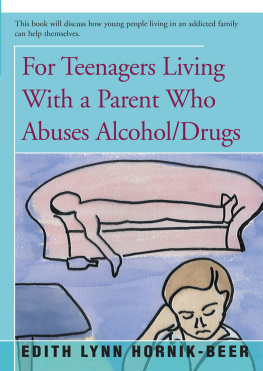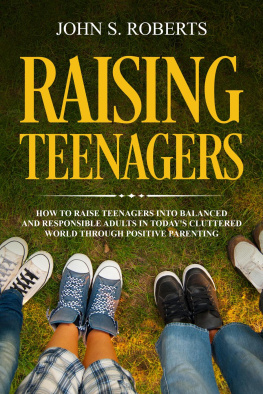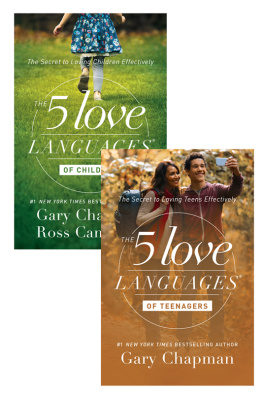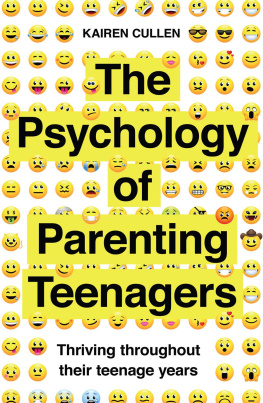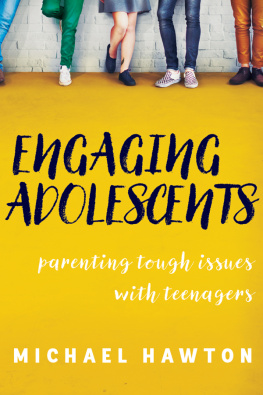Teenagers Learn What They Live
Parenting to Inspire Integrity & Independence

BY DOROTHY LAW NOLTE, Ph.D. and RACHEL HARRIS, Ph.D.
WORKMAN PUBLISHING NEW YORK
Copyright 2002 by Dorothy Law Nolte and Rachel Harris Cover illustration copyright 2002 by Marla Baggetta
All rights reserved. No portion of this book may be reproducedmechanically, electronically, or by any other means, including photocopyingwithout written permission of the publisher. Published simultaneously in Canada by Thomas Allen & Son Limited.
Library of Congress Cataloging-in-Publication Data
Nolte, Dorothy.
Teenagers learn what they live : parenting to inspire integrity & independence / by Dorothy Law Nolte and Rachel Harris.
p. cm.
eISBN 9780761157113
1. Parenting, 2. Parent and teenager. 3. Adolescent psychology.
4. Values in adolescence. 5. Autonomy in adolescence.
I. Harris, Rachel. II. Title.
HQ755.8 .N625 2002
649.1dc21
2002028830
Workman books are available at special discount when purchased in bulk for premiums and sales promotions as well as for fund-raising or educational use. Special editions or book excerpts also can be created to specification. For details, contact the Special Sales Director at the address below.
Workman Publishing Company, Inc.
225 Varick Street
New York, NY 10014-4381
www.workman.com
To all teenagers:
May light and inspiration surround you.
Dorothy Law Nolte
To my own teenager, Ashley, and all her friends
for teaching me so much.
Rachel Harris
ACKNOWLEDGMENTS
Our deepest appreciation to our editor, Margot Herrera, for her careful thinking, common sense, and calm demeanor. We are also grateful to Janet Hulstrand for her editorial contributions and our agent, Bob Silverstein.
CONTENTS
Teenagers Learn What They Live

by Dorothy Law Nolte and Rachel Harris
If teenagers live with pressure, they learn to be stressed.

If teenagers live with failure, they learn to give up.

If teenagers live with rejection, they learn to feel lost.

If teenagers live with too many rules, they learn to get around them.

If teenagers live with too few rules, they learn to ignore the needs of others.

If teenagers live with broken promises, they learn to be disappointed.
If teenagers live with respect, they learn to honor others.

If teenagers live with trust, they learn to tell the truth.

If teenagers live with openness, they learn to discover themselves.

If teenagers live with natural consequences, they learn to be accountable.

If teenagers live with responsibility, they learn to be self-reliant.

If teenagers live with healthy habits, they learn to be kind to their bodies.

If teenagers live with support, they learn to feel good about themselves.

If teenagers live with creativity, they learn to share who they are.

If teenagers live with caring attention, they learn how to love.

If teenagers live with positive expectations, they learn to help build a better world.

Introduction
Teenagers Learn What They Live is an extension of the parenting philosophy expressed in Children Learn What They Live, both the poem and the book by the same title. Our message is that children and teenagers learn from our examplefrom what we do, not what we say. The way we live our lives, the choices we make, how we spend our time, and especially the quality of our relationships are the most powerful legacy we pass on to the next generation.
Our teenagers are learning from us even while theyre rebelling against us. Theyre especially sensitive and critical of any contradictions between what we say and what we do, and they seem almost to take pleasure in noticing any inconsistency. Also, they can be practically allergic to our most informative lectures, regardless of how well intentioned we might be. Therefore, we cant transmit our values by words alone; we have to inspire them through our behavior. We, ourselves, are the model we present to our teenagers.
No matter how resistant or even mature our teenagers appear, the reality is that they still need us. Our kids need our time and attention, our energy and concern, and yes, even our guidance, whether or not they are willing to admit it. We need to give our teens the message that we are there for them in seemingly insignificant-everyday interactions as well as moments of crisis throughout all the years of adolescence. They are never too old for this caring reassurance. Its the basis of the parenting relationship.
We hope that Teenagers Learn What They Live will inspire you to become the parent you have always wanted to be, as Jack Canfield said in his forward to Children Learn What They Live. That said, we must admit that its likely therell be times when youll try your utmost to be the best parent you can be, yet things will still not work out the way you want. Parents of teens can legitimately feel helpless and powerless no matter how conscientiously theyve raised their kids.
Many parents endure some challenging times during their childrens adolescencea crisis, a year from hell, or at best, seemingly endless worry about real risks and dangers. Most teens come through these difficult periods having grown older and wiser from their experience. But some will not. Parents need to make their own decisions about when to seek professional help, since every situation is both complex and unique. We can assure you, though, that sooner is better than later. If you are concerned about your teenagers health and well-being, dont hesitate to seek professional advice, psychotherapy, or family counseling. This book is not intended to replace such help.
Teenagers Learn What They Live focuses on the relationships between parents and teens, not the problems. We need a warm, caring, and open relationship with our kids so that theyll be honest with us about their day-to-day lives. Our greatest opportunity to influence our teenagers during these critical years is through our relationship with them. The better our connection, the more theyll be willing to listen to us and consider our perspective and guidance. And we need to make sure were well connected to our kids before they enter puberty with all its accompanying hormonal changes. We want to start the journey of adolescence with our teens feeling that they are of primary importance to us, that they are the priority in our lives. These years are our last chance to help them prepare for their future and young adulthood.


